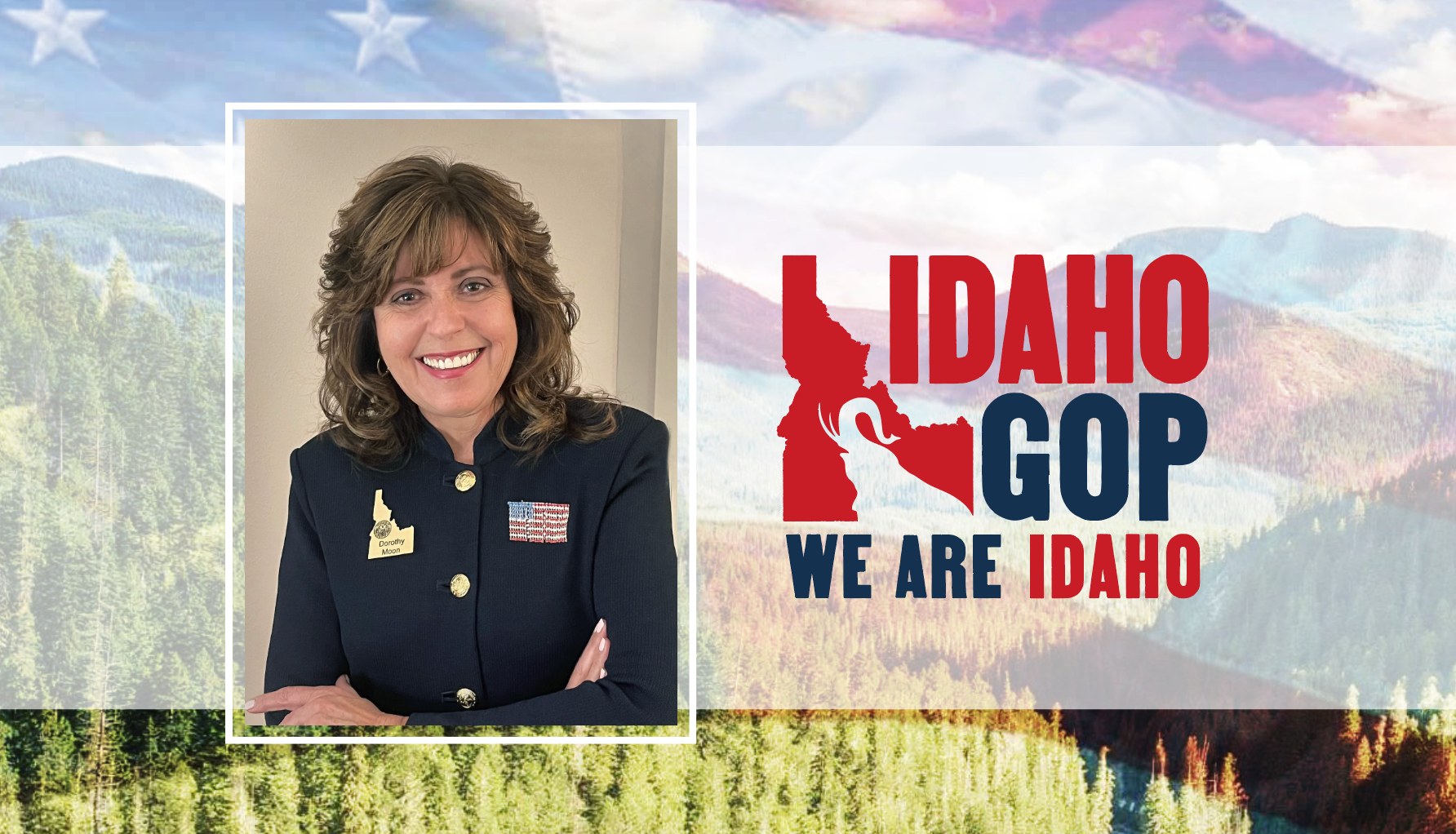By Dorothy Moon, IDGOP Chairwoman
April 14, 2023
The 2024 Republican Presidential Primary is shaping up to be one of the most consequential primaries of the last forty years. Selecting the delegates who will decide the next Republican nominee can seem a complicated and arcane process.
Across the country, state Republican parties use different procedures to select delegates to send to the Republican National Convention. After the implosion of violence and mayhem at the 1968 Democrat National Convention, the Democrat Party moved to implement a series of primary elections, where voters cast a secret ballot for eligible candidates. A primary allows voters the semblance of participation in a process still largely controlled by “super delegates” and party insiders. For a time, Republicans largely copied this model. But unlike Democrats, Republicans have never allowed party bosses to wield outsized control of the nominating convention.
Alternately, some states use a caucus system, where registered party members gather together and work, through dialogue and deliberation, to determine their preferred candidate. Iowa, with some of the highest election participation rates in the country, is one of the leading models of the caucus system.
The key thing to keep in mind: whether a state party uses a primary or a caucus, votes are tallied to determine the total delegates a presidential candidate can be awarded. In other words, a presidential nominating contest is about determining pledged delegates for a potential party nominee.
Idaho’s presidential nominating process has undergone several changes over the years. In 1976 the state held its first presidential primary. The presidential primary was historically held in May, late in the national presidential primary cycle.
In 2012, to increase Idaho’s relevance in national policy discussions and to attract presidential candidates to the state, the Idaho GOP decided to switch the May primary to a March caucus. The change required a lot of manpower and resources, but the new caucus attracted some of the most significant presidential candidates to come to Idaho and campaign directly for Idaho votes.
Leading up to the 2016 presidential cycle, the Idaho Republican Party worked closely with legislators to change the law governing the presidential primary, moving the date of the primary from May to March. This change was an enormous success for the State of Idaho. An earlier primary electrified grassroots activism, donors, as several leading presidential campaigns came to the Gem state to discuss and debate Idaho-specific issues. Many of us remember the infusion of energy—and the attention paid to Idaho industries—during visits from 2012 to 2020 from Ted Cruz, Newt Gingrich, Marco Rubio, Mitt Romney, Rick Santorum, Ron Paul, Carly Fiorina, Jeb Bush, John McCain, Mike Huckabee, Duncan Hunter and campaign representatives from eventual nominee Donald Trump and others.
An earlier primary compels presidential candidates to focus their attention — and spend some of their resources — in Idaho. When candidates know that they need to win a state’s delegates, they will spend more time and resources campaigning in that state. This means more rallies, more town hall meetings, and more opportunities for voters to engage with the candidates and build momentum in the party. It also means more meals eaten in our restaurants, more nights booked in our hotels and motels, and more time spent listening to our farmers, miners, entrepreneurs, and business leaders. A later primary date will mean that candidates won’t bother to show up in Idaho at all, as they focus on states that vote earlier and, because of their size, have more delegates to offer. Make no mistake: a primary held in May means Idaho’s voice is drowned out by the decisions made in earlier primary states, leaving Idaho — and Idaho’s Republican voters — largely irrelevant in a national nominating process.
This past legislative session, Idaho Secretary of State Phil McGrane brought forward HB138 — a bill that would remove the Republican Party’s March presidential primary. The bill passed out of the legislature and was signed into law by Governor Brad Little. McGrane and his backers say that an error and omission in the legislative language unwittingly removed the presidential primary; their goal was to move the primary to May. But because of sloppy drafting, Idaho is now without a “legal mechanism for political parties to request a presidential primary election”, as McGrane recently put it.
In essence, McGrane’s goof makes an Idaho GOP presidential nominating contest that much more difficult for the people. Where does that leave us? The Idaho GOP is evaluating all legal avenues and working to determine how to safeguard the early March nominating process that has already brought significant benefits to Idaho.
As the last Red State in the West, Idaho should be a beacon of conservatism, with a clear role in the Republican presidential nominating process. By keeping our earlier primary, Idaho is a more significant player in determining the direction of the national party and the policy views of the candidate who ultimately receives the nomination. The Idaho Republican Party will fight to ensure the momentum we gained in the 2016 and 2020 March nominating contests are not lost because the “smartest guys in the room” tried to unilaterally change the law. The Party will fix this error and ensure that the voice of the Idaho GOP is heard loud — and early — in the 2024 presidential nomination process.



